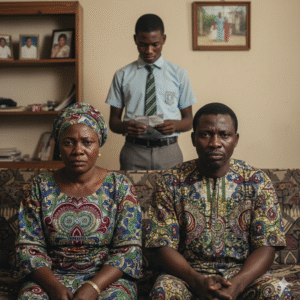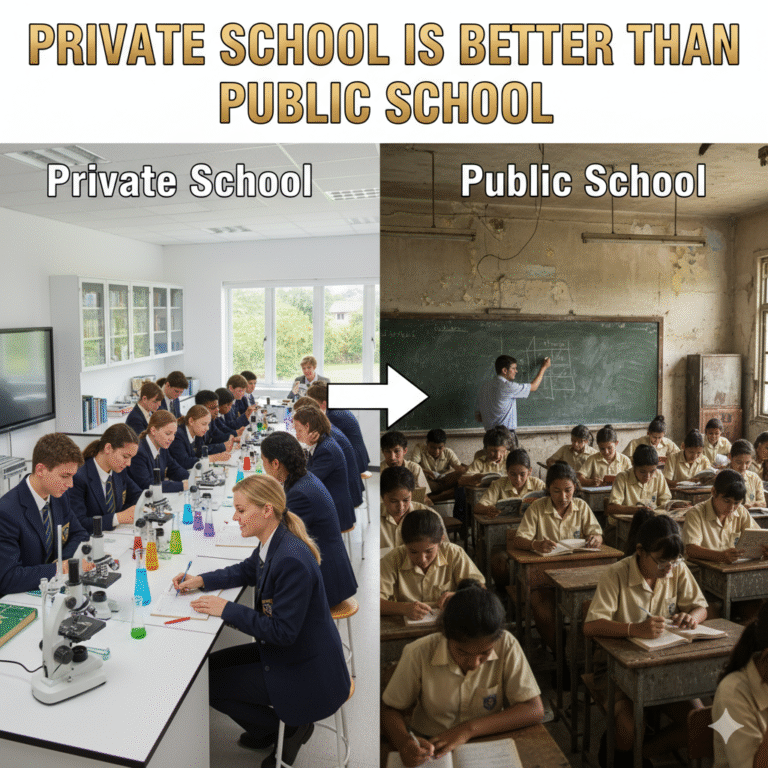Debate: Should Parents Be Blamed for Their Children’s Misconduct? (7 Winning Points)
Debate: Should Parents Be Blamed for Their Children’s Misconduct? (7 Winning Points)
Looking for the winning points for your next big debate? You’ve come to the right place. I’ve put together a powerful script for you.
Today, we are tackling a very common and passionate topic. This post gives you strong arguments supporting the motion: Should Parents Be Blamed for Their Children’s Misconduct? Yes, they should.
Before we start, what do we mean? “Misconduct” is just bad behavior, indiscipline, or acting in a way that society frowns upon—think of things like bullying, stealing, or even serious examination malpractice. “To be blamed” means to hold them responsible or accountable.
Disclaimer: This article is designed to help you win an educational debate. We are looking at one side of the argument. In real life, every situation is complex, but in a debate, your job is to be persuasive.
Let’s get those winning points.

Winning Debate Points: Why Parents Are to Blame for Their Child’s Misconduct
1. The Foundation of All Learning Starts at Home
Good day, Mr. Chairman, Panel of Judges, accurate time-keeper, co-debaters, and all my fellow students.
My first and most important point is simple: A child is like a new notebook, and the parents hold the first pen.
The home is the first school. Before any teacher, any friend, or any pastor or imam, a child learns from their parents. They learn how to talk, how to eat, and, most importantly, they learn their first sense of right and wrong. This is what experts call moral development.
If a child sees his parents lying, he will learn to lie. If a child hears her parents shouting and cursing, she will learn to be disrespectful. You cannot plant yam and expect to harvest cassava. Therefore, the upbringing a parent provides is the direct foundation for the child’s future behavior.
2. Parents Are the Primary Role Models
To continue, parents are the primary role models for their children, whether they like it or not.
A child is a natural imitator. They don’t just listen to what their parents say; they watch what their parents do.
Imagine a father who tells his son, “Don’t smoke,” but the father himself smokes every day. What message has he sent? He has taught the child that rules are meant to be broken.
A mother who gossips about her neighbors is teaching her daughter to do the same. When this child then goes to school and engages in bullying or spreading rumors, who is to blame? It is the parents, who set the bad example. The parental influence is too strong to ignore.
3. Neglect is a Form of Misconduct by the Parent
My third point is about neglect. Many parents today are too busy. They are chasing money, careers, or social status. They leave their children in the hands of house-helps, TV, and the internet.
This is not parenting; it is neglect. When you don’t spend time with your children, you don’t know who their friends are. You don’t know what they are watching. You don’t know the problems they are facing.
A child who is not monitored is a child who is free to make mistakes. This lack of guidance is a direct cause of a child’s misconduct. It’s like leaving a pot on the fire without watching it—it will surely burn.
4. Failure to Discipline is a Failure of Parenting
Furthermore, it is the parent’s job to set rules and enforce them. This is what we call disciplinary action.
Discipline is not just about flogging. It is about teaching consequences. If a child does something wrong and the parent just laughs, pets them, or “covers” for them, that child learns a very dangerous lesson: “I can do anything and get away with it.”
This is how small misconduct, like stealing meat from the pot, grows into bigger misconduct, like stealing money from a classmate. When parents fail to apply firm and fair correction, they are actively encouraging bad behavior. This lack of accountability at home leads directly to problems outside.
5. Parents Have the Legal and Moral Responsibility
Let’s talk about parental responsibility. It’s not just a suggestion; it’s a duty.
In Nigeria, and in most parts of the world, parents are legally responsible for their children (minors). This is why a respected body like UNICEF emphasizes the crucial role of parents in a child’s well-being and development.
This responsibility means providing food, shelter, and education. But it also means providing moral guidance. If a parent fails in this moral duty, they must be held responsible for the outcome. You cannot own a dog, refuse to train it, and then blame the dog when it bites someone. The owner is responsible. It’s the same with children.
6. Many Parents Defend Their Children’s Bad Behavior
Another key point is that many parents are part of the problem.
Have you ever seen a parent who comes to school to fight a teacher for disciplining their child? I have.
When a teacher reports that a child is always late, fighting, or cheating, what do some parents do? They get angry… at the teacher! They say, “My child is a good boy,” “Stop picking on my daughter,” or “Are you the only one who went to university?”
When a parent defends obvious misconduct, they are giving that child a license to continue. They are teaching them to disrespect authority. In this case, the parent is not just to blame; they are an accomplice.
7. External Influences Only Build on a Weak Foundation
Now, my opponents will try to stand on this podium and tell you about other influences. They will shout “peer pressure!” “bad friends!” “society!” and “the internet!”
But I ask you: on what foundation do these influences build?
A house with a strong foundation, built with the right kind of values, can withstand any storm. Peer pressure can only influence a child who has not been given a strong moral compass at home.
If a child has been taught confidence and self-worth by their parents, they will not need to join a bad gang to feel important. If a child has been taught the value of honesty at home, they will not be easily convinced to cheat.
Therefore, these “external influences” are just excuses. The real problem is the weak foundation laid by the parents.
Frequently Asked Questions (FAQs)
Q: What is the strongest argument for the other side? A: The strongest argument is usually about “individual responsibility.” They will say that from a certain age, a child (especially a teenager) has their own mind and can make their own choices, regardless of their upbringing. They will also blame society, peer pressure, or even social media.
Q: How do I conclude this debate speech? A: A great conclusion is to summarize your main points quickly and end with a strong, passionate statement. For example: “Mr. Chairman, I have proven to you that from the foundation they lay, the example they set, the discipline they fail to give, and the legal responsibility they hold, parents are the root of their child’s behavior. As the saying goes, ‘The apple does not fall far from the tree.’ Thank you.”
Q: What’s a good way to start this debate? A: A good greeting is key! We have a full guide on how to start a debate in a secondary school that you should check out. It builds your confidence.
Conclusion
So, there you have it. Seven powerful, copy-and-paste arguments to prove that parents should, and must, be blamed for their children’s misconduct.
The main points are:
- Home is the first school.
- Parents are the #1 role models.
- Neglect leads to bad behavior.
- Failure to discipline is encouraging misconduct.
- Parents have a legal and moral duty.
- Many parents wrongly defend their children.
- A strong home foundation resists bad influences.
Final Disclaimer: Remember, this is for an educational debate. Every parent tries their best, and many factors influence a child. The goal of this post is simply to give you the strongest possible points to win your argument.
What do you think? Do you agree? Drop your opinions in the comments section below!
Also, feel free to share this post with your coursemates or those in your debate team! Good luck.







